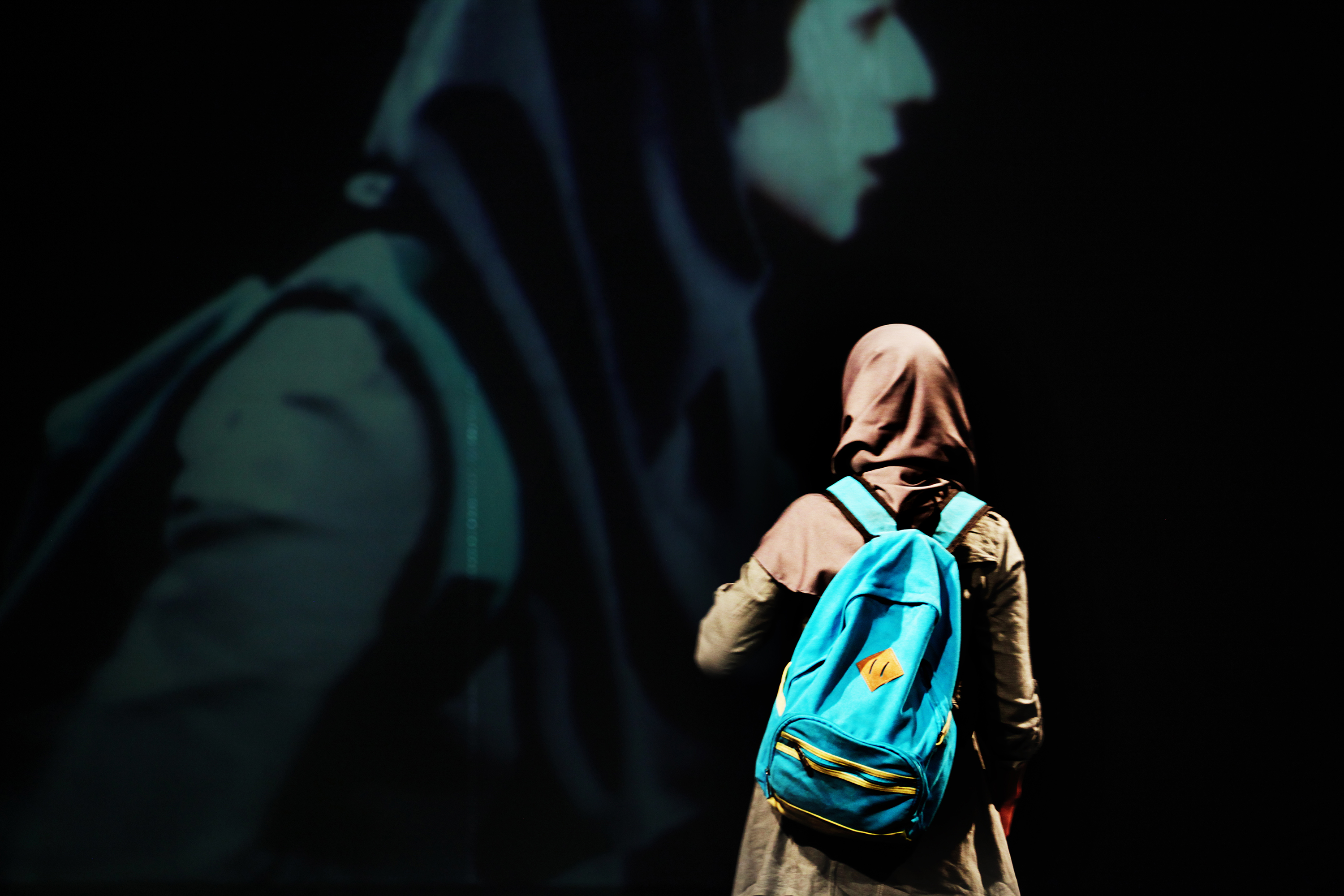
Amir Reza Koohestani
- workshop
n contemporary theater, the message we want to deliver is not necessarily the message said. In other words, the shown or said “things” on the physical stage has to lead the audience to see and hear other “things” on an imaginational stage: A stage beyond the physical stage. This makes us absolutely dependent on audience’s imagination.
What We Leave Unsaid
In contemporary theater, the message we want to deliver is not necessarily the message said. In other words, the shown or said “things” on the physical stage has to lead the audience to see and hear other “things” on an imaginational stage: A stage beyond the physical stage. This makes us absolutely dependent on audience’s imagination.
As an artist living under the censorship condition, I have understood the fact that the “things” that are censored are the ones that are actually said or shown. But how on earth could you challenge the society while every challengeable matter is censored on a certain level? How a work that has to pass censor could deal with the questions that are censored? The point is that censor is just accomplished on the “things” and imagination is something that can’t ever be censored.
In my recent works, I am also focusing on what we leave unsaid in our daily life; plays which are mostly based on the imaginary life, caused by the social and political environment.
In my last work, Hearing, where in a female dormitory the presence of men is totally prohibited, a man’s voice is heard. In a situation where “things” are mostly forbidden, the imaginary man’s voice can create a real man in the imaginary world. A report based on an imaginary man’s voice leads up to an unexpected destruction. Hearing is a play built on the possibilities of the physical and imaginational stages.
In the upcoming workshop “What we leave unsaid” we are aiming to talk about the imaginational stage that occurs in audience’s mind. How can we build this stage, and moreover how can we absolutely (or almost) be sure that the audience will cooperate with us? To enter audience’s imagination we need to know them well and knowing them requires an understanding of the place and time they are living in.
In this workshop, the participants and I will share our own experiences from the time and place we are living in, and communicate without the need of everything being said or shown.
As part of Kunstenfestivaldesarts. With the support of La Bellone.
Amir Reza Koohestani
Amir Reza Koohestani was born in 1978 in Shiraz, Iran. He was 16 when he began publishing short stories in local newspapers. Attracted to cinema, he took courses in directing and cinematography in 1995 and created two unfinished films. After a brief experience as a performer, he devoted his time to writing his first plays: And The Day Never Came (1999), which was never performed, and The Murmuring Tales(2000), which was critically acclaimed in Tehran at the 18th International Fadjr Theatre Festival. With his third play, Dance On Glasses (2001), which toured for four years, Amir Reza Koohestani gained international fame and was supported by several European theatrical artistic directors and festivals. The plays Recent Experiences (from the original text by the Canadian writers Nadia Ross and Jacob Wren, 2003),Amid The Clouds (2005), Dry Blood & Fresh Vegetables (2007) and Quartet: A Journey North (2008) followed, all of which have been successful in Europe. Amir Reza Koohestani was also commissioned by the Schauspielhaus in Cologne, where he wrote and stagedEinzelzimmer (2006), and by the Nouveau Théâtre de Besançon, with Japanese director Oriza Hirata and French director Sylvain Maurice, creating the play Des Utopies? (2009) which toured France and Japan. After two years studying in Manchester, Amir Reza Koohestani returned to Tehran in July 2009 and created the play Where Were You On January 8th? which has toured Europe, Brazil and Japan. In October 2011, despite finishing his military service, Amir Reza Koohestani created the adaptation of Ivanov by Anton Chekhov, successfully staged in Tehran for several weeks. In February 2012, the film Modest Reception, the script for which was co-written by Koohestani and actor and director Mani Haghighi, won the Netpac Award at the Berlin International Film Festival in 2012. In September 2012, he created the performanceThe Fourth Wall, adapted from the play England by Tim Crouch, which was presented one hundred times in an art gallery in Tehran. In 2013, Festival actoral in Marseille (France) commissioned Koohestani to write and stage a new play, Timeloss. Amir Reza Koohestani is the first director to win two consecutive Best theatre production of the year awards in Iran for Ivanov in 2011 and The Fourth Wall in 2012.
http://www.mehrtheatregroup.com/
Illustration
The Cifas asks contemporary artists to illustrate its communication. Noémie Marsily illustrated the workshop led by Amir Reza Koohestani.

I am born in 1983 in Belgium and since then I scribble, engrave, paint, draw, scrawl and sketch images that often move. I participated in several fanzines and collective books with "Nos Restes" and "L'Employé du Moi". I recently published a comic book, "Fétiche", at Requins Marteaux Editions as well as a children book, "Le Musée de la Moufle", at Sarbacane Editions. I also realise animated short films, as for example "Autour du Lac", with Carl Roosens.